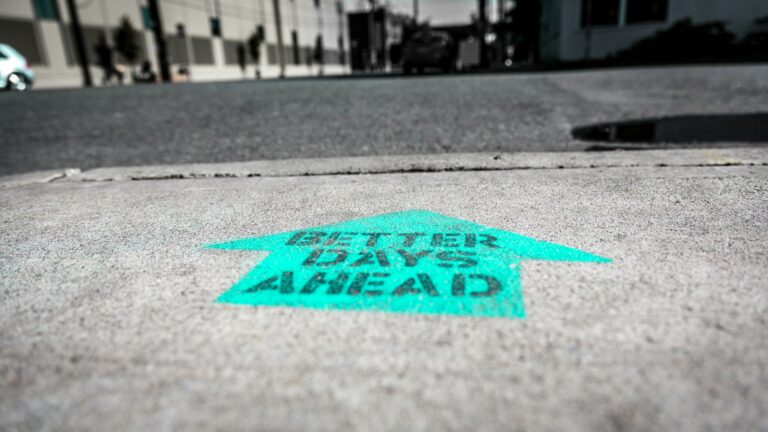Recently Voddie Baucham spoke at my church. He shared about his ministry in Zambia and prior to that in Texas. What I didn’t know was that he grew up in Los Angeles in a neighbourhood that I knew very well from my days as a student at Masters college. I didn’t grow up in Los Angeles. I was born between the Canadian Rockies and the horizon of the Prairies. I’m a descendant of Northern European immigrants who came from cold regions of Scotland, England and Norway to the cold regions of the Canadian West. My wife is the descendant of the same heritage of Northern Europeans pioneering on the frozen plains of Canada.
This Northern European and Canadian heritage was all that I knew until I became a believer in Jesus Christ and moved to Southern California to attend a bible college. It was then that a kid from the Canadian Prairies entered the world of American race relations.
I was a brand new Christian when I went to Los Angeles to attend the Masters College because I had heard John MacArthur on the radio. At the school, my first roommate had a remarkable story of being wrongfully convicted of armed robbery and on the day of his sentencing the true culprit was caught. His release was also the occasion for a great spiritual experience as he was confronted with the claims of Christ. He was an African American from Oceanside California who seemed to know all about the culture of Crips and Bloods that I only knew from listening to some kid’s bootleg cassettes of NWA on long rural bus rides.
With no car at college I had to get a ride to church and so I travelled with a math major who was a diligent bible student. She grew up in the Carson area of Los Angeles and had her own experience of witnessing the gang culture and emerging rap scene of the day. But her experience also included the drive to succeed in school through academics in a way that my roommate and I didn’t.
Eventually, the car rides promoted friendship and soon we were dating. It was a typical Christian college relationship. The only difference was that culturally we were very different. Our visible skin tone differences were obvious, but just as obvious was the fact that I represented a rural Western cowboy culture that was often associated with a stereotype of white supremacists. I was a white guy coming directly from the rodeo circuit dating a black girl from urban L.A. Talk about culture shock for both of us!
Being in an interracial relationship in the early 90’s wasn’t easy. On one occasion we were leaving a Grace Community Church bible study on the campus of CalState Northridge and we passed the auditorium where Louis Farrakhan of the Nation of Islam was speaking. I knew that the Nation of Islam denounced interracial relationships, but I was arrogantly unafraid and was ready to debate and more if need be. But my girlfriend wisely urged us to leave as quickly as possible, passing Farrakhan’s posted sentries at every street corner.
But the interracial relationship was challenging in other ways. She had to deal with my apparent similarities to negative aspects of ‘redneck’ culture. Yet she also had to separate the fact that I was a Canadian without any institutional or historic connection to the race tensions of the US. It must have been difficult to be with me, with my appearance of cowboy boots and mullet hair, possibly looking like someone’s stereotype of a guy at a Klan rally. The potential associations were unknown to me, but not to her. I didn’t know there could be a negative connotation to the term ‘redneck’ but I soon found out that to many people it meant much more than just a ‘farm kid’.
I had the challenge of attempting to empathize with both her past and present as best as I could. I listened and learned like anyone from a different culture wishing to appreciate someone else’s differences. Most of the time the cultural differences were between being a Canadian and an American. Or being a rural Albertan compared to an urban Angeleno.
But there were other things which I tried to empathize with in the black experience that could not be overcome. No matter what I tried, it seemed as if I could not succeed in fully empathizing. Yet as I consider it, who can fully know another human being? Who can understand their experiences and influences and joys and pains? There is a common human nature, with many shared experiences but each of us has elements of our lives that make us strangers to one another. I don’t think this was unique to my girlfriend’s experience, nor to mine. But it did point me to the fact that the only one who could know anyone perfectly, at the deepest level was the incarnate Son of God who according to his human nature has, “borne our griefs and carried our sorrows” (Isaiah 53:4). I was welcomed into another’s world, but I could never fully know it except in the world to come.
Days passed as we tried to keep our relationship going at a distance. We reunited on the East Coast in Boston as we both went to grad schools there. We encountered a different culture for us both. It was no longer L.A. street and suburbia culture but the historic immigrant tensions of Boston, mixed with higher education veneers and the subtleties of paternalism.
While in Boston I took a class on Christianity and the Problem of Racism. The mostly white seminary students from north of Boston met with the mostly African American and Latino American students from the downtown campus. We looked at case studies and examined history in a large circle where every eye was upon each other. Bias was exposed, even down to the subtle ones. Terms like ‘white pride’ ‘black guilt’ ‘black pride’ ‘white privilege’ and ‘white guilt’ were all in play. All of our sins and self-deceptions were viscerally exposed as each student was confronted with their own blind spots. The solutions proposed were modest, but profound in their modesty. The best answer was the obvious one, namely simple faith in Jesus Christ and his atoning work which provides forgiveness of sins and the supernatural power for sinners to forgive other sinners. Only with identity in Christ, not skin or culture, was their hope for reconciliation and healing.
During that time I continued reading some of the key commentary on white-black relations within American evangelicalism. The canon included Tom Skinner, William Pannell, and Carl Ellis. Added to this I read the fascinating story of John Perkins and the many endeavours he pioneered from the Voice of Calvary ministry in Mississippi to the Christian Community Development Association. I noted with interest John MacArthur’s testimony of being in Mississippi during the Civil Rights movement and early support for Perkins and Voice of Calvary. There was also the academic missiology of Harvey Conn and Manuel Ortiz out of Westminster Theological Seminary that targeted urban church planting long before church planting was cool.
As often happens, “many plans are in a man’s heart, but the counsel of the LORD will stand.” (Proverbs 19:21) The dating relationship ended which was best for us both. I returned to Canada, to farming, then teaching and eventually urban church planting.
I lost touch with my old roommate. He went on to have a pro baseball career, but after retirement in Oceanside he was murdered in a contract killing. I was filled with questions when I heard, wondering how such a thing could happen. I could only speculate from afar the profound sadness of a community which sees the cycle of violence return repeatedly.
All of this came back to mind recently when Voddie Baucham spoke at my church and he shared with me about growing up in South Central Los Angeles. I was taken back to my Canadian encounter with the profoundly American cultural experience of my college days. As I considered Voddie’s ministry with African Christian University and its emphasis on biblical worldview, it seems like the kind of work that could transform any culture, one Christian, one church at a time. I came away from the discussion with Voddie thinking that North America needs to be learning from Zambia.
In the tensions of Christian sinners attempting to grow in fellowship with one another, promoting empathy, minimizing presumption, and scaling back expectations for each other— these are places to start. Of course Jesus Christ must be the beginning and end of it all. Our hope must reside in him, trusting in his deep atoning work that can do what no amount of effort on our part can— forgive sins once and for all.
















